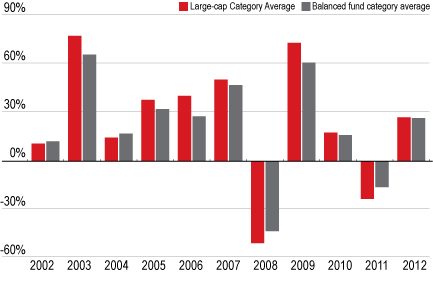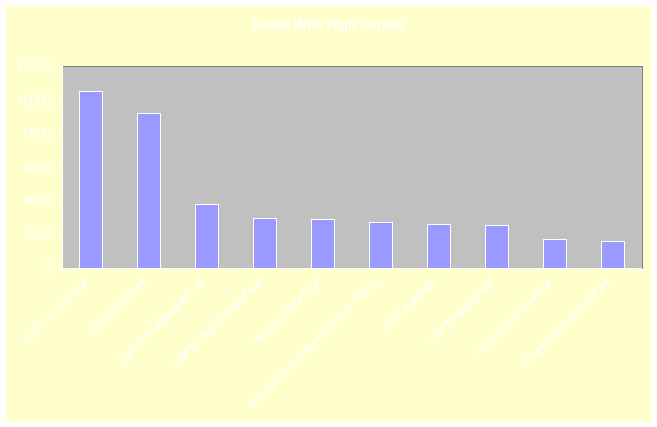Large Cap Equity Funds What Are LargeCap Equity Funds
Post on: 27 Март, 2015 No Comment

A Large-Capitalization Equity Fund Invests in Big Company Stocks
You can opt-out at any time.
Please refer to our privacy policy for contact information.
Large-cap equity funds are mutual funds that invest in large-capitalization stocks. Market capitalization is what the company is worth. To find out a company’s market cap, you take the stock price and multiply it by the number of company shares.
Investments are often grouped into market cap segments: large-, mid- and small-cap. But not every financial professional has the same way of defining these market caps. Generally, small-cap companies are worth below $1 billion to $2 billion. Mid-cap companies are worth somewhere between $1 billion and $8 billion, and large-caps are worth more than $8 to $10 billion. The discrepancies exist because the segmentation is a bit arbitrary. Think of a small-cap company as a newish, growing venture. Mid-cap companies are successful companies that are not necessarily leading in their fields. Large cap companies are the established firms. The biggest or most successful companies on the market.
But a large-cap equity fund could be a lot of different things. As many ways as there are to diversify a portfolio, you could probably add a large-cap strategy to each. There are further ways to break down large-cap equity funds.
Is It Indexed or Actively Managed?
Mutual funds are generally run in two ways. It could be an index fund. like an S&P 500 Index Fund, which is designed to passively invest in the performance of 500 of the largest companies in the U.S. Or it could be an actively managed fund, where a manger or a management team selects the large-cap stocks it thinks will outperform based on a set criteria.
Is It Growth or Value or a Combination?
The next fund differentiator is the investment style. If it’s an index fund, the goal will be to follow whatever index it is targeting. But if it’s actively managed, the fund’s managers could be investing for growth. meaning buying stocks that they think will grow, regardless of the stock’s price. Or they could be investing for value. meaning trying to find stocks that are priced lower than they should be based on the company’s worth based on the company’s fundamentals. (Warren Buffett is the most famous value investor of our time.)
A fund can be a combination value fund and growth fund, and an index fund that follows the S&P 500 is likely to benefit from both growth and value stocks. The point is that fund mangers have to spell out at the beginning how they are going to invest the fund, and they can’t veer from that objective even when they see growth elsewhere. Investors choose different funds for the purpose of diversification. The theory is that when one area of the market is down, the other will be up.

Sector Large-Cap Equities
There are also funds that invest in large-cap companies in specific market sectors. These are called sector funds. Sectors of the market are industry groups like Technology, Real Estate, Financial, Healthcare, etc. So, for example, a large-cap communications fund is one that invests in the largest media and communications companies.
For the average investor, an S&P 500 fund provides all of the necessary sector exposure. However, financial advisors often use sector funds or sector ETFs to create balanced portfolios for individuals who own a lot of company stock. If you work at Google and own stock, that’s a lot of technology exposure. A balanced portfolio can be built around this one stock allocation, using sector funds or sector ETFs to round out your holdings.
Fund managers can apply many other style screens when investing in large-cap equities. For example, a fund manager investing in socially responsible companies may look for large companies that follow environmentally friendly practices, or take good care of their workforce.
So when you see that a fund is a large-cap equity fund, know that’s only part of the story. Do a little investigation to find out what each fund is attempting to achieve. Your portfolio’s balance may depend on it.
Disclaimer: The content on this site is provided for information and discussion purposes only, and should not be misconstrued as investment advice. Under no circumstances does this information represent a recommendation to buy or sell securities.














